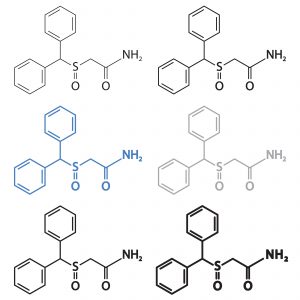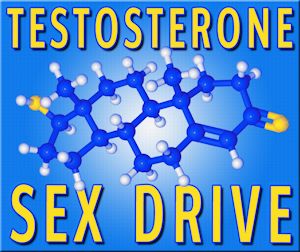
Nitric Oxide is a crucial and multifaceted chemical messenger, that is incredibly vital for maintaining human function.
Nitric Oxide acts similar to a hormone but is an inorganic compound. There is even some evidence that Nitric Oxide can be used therapeutically to halt the growth of cancerous tumors.
Though Nitric Oxide has been heavily studied, scientists are still in the process of learning the specific mechanisms by which Nitric Oxide mitigates tumor growth.
Video Link: https://vimeo.com/290610221
Video Download: Click Here To Download Video
Video Stream: Click Here To Stream Video
Depending on external factors, Nitric Oxide can also facilitate tumor growth, so it is essential to understand precisely the role that Nitric Oxide plays to both promote new and better cancer treatments and reduce cancer risk.
What is Nitric Oxide?
Nitric Oxide has been a known entity since the late 19th century, but it was not until 1998 that researchers began to discover the functions of Nitric Oxide in the human system.
Three doctors won the Nobel Prize in 1998 for describing Nitric Oxide's role as a vasodilator. All living human cells can produce Nitric Oxide, which is a free radical molecule that can be absorbed in water.
What does Nitric Oxide Do?
Nitric Oxide is a chemical messenger that the cells use to communicate with one another. It is also apparent that Nitric Oxide has a powerful effect on genetic expression, and is known as a Pleiotropic Regulator.
Essentially, the hormone switches genes on and off, changing the way that cells function. A few of the most important things that Nitric Oxide does are foster vasodilation, enhance immune system function, and facilitate neurotransmission.
vasodilation, enhance immune system function, and facilitate neurotransmission.
Beyond those functions, Nitric Oxide also encourages the growth and replication of cells. About cancer, this can have both a positive and negative impact dependent upon external factors.
In our global fight to cure cancer, therapeutic Nitric Oxide shows promise as a mechanism to boost the replication of healthy cells, combatting the effects of cancer treatments that damage both cancer cells and healthy cells.
An article published in the Journal of Surgical Oncology in 2013 explains that the body of research thus far shows how Nitric Oxide can encourage cancer growth, specifically about metastasis, invasion, cell cycle, apoptosis, and angiogenesis.
In spite of this evidence showing how Nitric Oxide can agitate cancer, there is mounting evidence that, when applied strategically, Nitric Oxide very well may have potent anti-cancer properties.
A recent British study provides evidence that expands on the hypotheses of the 2013 journal article.
Research shows that the amount of Nitric Oxide expression has an impact on whether the chemical enhances or halts tumor growth. Correctly, it appears that, beyond a certain level of expression in which Nitric Oxide encourages cancer proliferation, it begins to have the opposite effect.
The takeaway point is that elevated levels of Nitric Oxide can impair cancer growth.
When Nitric Oxide levels are too low, the chemical exacerbates existing cancer tissue, though the exact levels which are considered too low are still under consideration.
Nitric Oxide and Cancer Treatment
Numerous studies have shown that elevating Nitric Oxide Levels slows down tumor growth. For that reason, it may be prudent for you to consider taking steps to encourage a healthy Nitric Oxide balance.
How Can I Encourage Higher Nitric Oxide Levels?
Based on current research, the most effective way discovered to boost Nitric Oxide Levels naturally is by increasing L-Arginine Levels in the bloodstream. L-Arginine is an amino acid that works as an enzyme to stimulate the production of Nitric Oxide, by activating Nitric Oxide Synthase.
Research published in Tumour Biology in the year 2000 first showed evidence that elevated Nitric Oxide Levels destroyed cancer cells in a laboratory environment.
Further research published in the Journal of Experimental Medicine provided new evidence that a physiological environment high in Nitric Oxide could limit cancer growth.
In this particular study (conducted in mice), Nitric Oxide increased macrophage activity at the cancer site, meaning that the macrophages were actively seeking out the offending cells.
When Nitric Oxide Levels were too low, however, the proliferation of cancer cells was faster than they could be destroyed. A study released in 2011 provided similar evidence that Nitric Oxide appeared to have a similar impact on pancreatic cancer cells, by limiting the activity of enzymes which contributed to cancer growth.
How to Boost Nitric Oxide Levels
As mentioned earlier, L-Arginine facilitates the production of Nitric Oxide. There are lots of dietary sources of L-Arginine and nitrates which promote the release of Nitric oxide. The following are some foods that can boost L-Arginine Levels:
- Dairy Products
- Peanuts
- Soybeans
- Pumpkin Seeds
- Chicken
- Pork Loin
- Turkey Breast
- Dark Chocolate
- Probiotics to Boost Nitric Oxide Production
Root vegetables and leafy green vegetables contain nitrates. Microflora in the digestive system consumes these nitrates and can convert them directly into Nitric Oxide.
Of course, to facilitate an optimal gut flora, you need to take steps to improve the  environment in your digestive tract. One way to do that is to eat probiotic and prebiotic foods that allow good bacteria to propagate.
environment in your digestive tract. One way to do that is to eat probiotic and prebiotic foods that allow good bacteria to propagate.
The second component is to reduce your reliance on foods which encourage unhealthy bacteria to reproduce, such as simple carbohydrates, sugar, and highly processed foods
Other Benefits of Healthy Nitric Oxide Levels
As we mentioned earlier, Nitric Oxide impacts physiological function in a large number of ways. The following are some other reasons to be conscientious regarding your Nitric Oxide Levels, based on ongoing research:
- Nitric Oxide plays a role in preventing Osteoporosis by increasing bone mineral density.
- Nitric Oxide inhibits infections and reduces downtime from injury and illness.
- Nitric Oxide boosts endurance and exercise capacity by encouraging improved blood flow.
- Nitric Oxide facilitates a robust immune system.
- Nitric Oxide alleviates inflammation.
Contact Us Today For A Free Consultation

- Testosterone for Women [Last Updated On: December 1st, 2023] [Originally Added On: December 29th, 2013]
- Testosterone Androgen [Last Updated On: December 11th, 2023] [Originally Added On: December 29th, 2013]
- Testosterone and Body Building [Last Updated On: December 14th, 2023] [Originally Added On: December 30th, 2013]
- Testosterone Levels [Last Updated On: December 6th, 2023] [Originally Added On: December 31st, 2013]
- Testosterone Gel, Cream, and the Testosterone Patch [Last Updated On: November 28th, 2023] [Originally Added On: December 31st, 2013]
- Buy Testosterone | Types of Testosterone Replacement Therapy Programs, Injections, Cream and Gel [Last Updated On: December 13th, 2023] [Originally Added On: December 31st, 2013]
- Buy Testosterone Injections Online, Testosterone Prescription for Low T, Testosterone Replacement Therapy [Last Updated On: October 16th, 2020] [Originally Added On: January 1st, 2014]
- Aging and Testosterone Replacement Therapy [Last Updated On: December 12th, 2023] [Originally Added On: January 3rd, 2014]
- What Causes Low Testosterone [Last Updated On: December 10th, 2023] [Originally Added On: January 7th, 2014]
- Hormone Levels in Men [Last Updated On: December 4th, 2023] [Originally Added On: January 12th, 2014]
- Hormone Level Testing [Last Updated On: November 29th, 2023] [Originally Added On: January 13th, 2014]
- Types of Testosterone Products and Delivery [Last Updated On: December 8th, 2023] [Originally Added On: January 22nd, 2014]
- Testosterone Therapy Helps Men with Low-T Ward Off Prostate Cancer [Last Updated On: May 29th, 2024] [Originally Added On: December 29th, 2019]
- The Importance of Dietary Fat for Testosterone Production [Last Updated On: July 8th, 2024] [Originally Added On: January 2nd, 2020]
- Testosterone Deficiency and Low-T at Epidemic Levels Among Men in the United States [Last Updated On: May 27th, 2024] [Originally Added On: May 17th, 2020]
- The Effects of Testosterone Therapy on Male Patients -- Who Should Use Testosterone? [Last Updated On: December 20th, 2023] [Originally Added On: June 16th, 2020]
- Does Ibuprofen Contribute to Low Testosterone? [Last Updated On: January 27th, 2024] [Originally Added On: June 20th, 2020]
- The Link Between Testosterone and Lower Rates of Autoimmune Diseases Among Men [Last Updated On: January 30th, 2024] [Originally Added On: June 21st, 2020]
- Weight Cycling and the Problem with Crash Dieting [Last Updated On: April 8th, 2024] [Originally Added On: July 30th, 2020]
- Reexamining Bio-Identical Testosterone Therapy [Last Updated On: June 18th, 2024] [Originally Added On: August 12th, 2020]
- Understanding how Muscle and Fat Impact Body Mass, Weight, and Health [Last Updated On: April 15th, 2024] [Originally Added On: August 25th, 2020]
- Understanding Heartburn in the 21st Century [Last Updated On: April 24th, 2024] [Originally Added On: August 28th, 2020]
- What is Erectile Dysfunction? [Last Updated On: April 20th, 2024] [Originally Added On: August 30th, 2020]
- Sermorelin Acetate Drug Information [Last Updated On: April 7th, 2024] [Originally Added On: August 31st, 2020]
- Exercise and Mental Health [Last Updated On: April 5th, 2024] [Originally Added On: September 1st, 2020]
- The Importance of Proteins, Carbs, and Fats [Last Updated On: March 11th, 2024] [Originally Added On: September 2nd, 2020]
- Low-T Treatment Before and After -- How Testosterone Therapy Improves Vitality [Last Updated On: April 9th, 2024] [Originally Added On: September 6th, 2020]
- Changes to LabCorp Guidelines for Low-T Diagnosis and How They Impact Your Treatment [Last Updated On: July 14th, 2024] [Originally Added On: September 22nd, 2020]
- The Effects of Testosterone on Asthma Prevalence Among Men and Women [Last Updated On: February 19th, 2024] [Originally Added On: October 6th, 2020]
- 7 Exercises to Elevate Testosterone Levels [Last Updated On: June 13th, 2024] [Originally Added On: October 10th, 2020]
- Vitamin A is Essential for Good Health - Are You Getting Enough ? [Last Updated On: April 16th, 2024] [Originally Added On: October 14th, 2020]
- Testosterone and Diet – How to Support Testosterone Levels with Healthy Eating [Last Updated On: June 7th, 2024] [Originally Added On: October 29th, 2020]
- The Significance of Telomeres in Stem Cell Treatments [Last Updated On: March 16th, 2024] [Originally Added On: November 27th, 2020]
- The Influence of Testosterone on Protective Mating Behaviors in Men [Last Updated On: January 25th, 2024] [Originally Added On: December 6th, 2020]
- The Role of Testosterone in Women's Health [Last Updated On: December 24th, 2023] [Originally Added On: December 7th, 2020]
- Testosterone Promotes Bone Health and Can Help Treat Osteoporosis [Last Updated On: February 15th, 2024] [Originally Added On: December 17th, 2020]
- The Relationship Between Testosterone and Cortisol [Last Updated On: April 2nd, 2024] [Originally Added On: December 19th, 2020]
- The Importance of Sex Hormone-Binding Globulin (SHBG) for Healthy Testosterone Levels [Last Updated On: March 9th, 2024] [Originally Added On: December 28th, 2020]
- 12 Health Issues That Can Kill Libido and Limit Sexual Performance [Last Updated On: May 23rd, 2024] [Originally Added On: January 3rd, 2021]
- 4 Foods to Boost Your Testosterone Levels [Last Updated On: February 7th, 2024] [Originally Added On: January 4th, 2021]
- Low Testosterone Symptoms [Last Updated On: December 31st, 2023] [Originally Added On: January 7th, 2021]
- Is Male Menopause Real? The Science of Andropause [Last Updated On: January 15th, 2024] [Originally Added On: January 11th, 2021]
- Relieve Fatigue and Increase Energy with Testosterone Replacement Therapy [Last Updated On: January 16th, 2024] [Originally Added On: January 16th, 2021]
- How to Administer a Testosterone Injection -- Low-T Injection Guide [Last Updated On: February 28th, 2024] [Originally Added On: January 17th, 2021]
- Testosterone Levels Associated with Serotonin Activity in the Brain [Last Updated On: March 26th, 2024] [Originally Added On: January 19th, 2021]
- Grumpy Old Man Syndrome – Causes and Treatments [Last Updated On: June 8th, 2024] [Originally Added On: January 22nd, 2021]
- The Effects of Beer on Testosterone Production and Gynecomastia [Last Updated On: March 21st, 2024] [Originally Added On: January 30th, 2021]
- Testosterone Frequently Asked Questions [Last Updated On: February 6th, 2024] [Originally Added On: February 26th, 2021]
- Testosterone Supplements: Vitamin and Amino Acid Pills Versus Real Testosterone [Last Updated On: November 21st, 2024] [Originally Added On: March 1st, 2021]
- Testosterone Side Effects, Risks, Dangers and Negative Effects [Last Updated On: November 7th, 2024] [Originally Added On: March 2nd, 2021]
- Testosterone for Men [Last Updated On: February 20th, 2024] [Originally Added On: April 13th, 2021]
- Testosterone Testing [Last Updated On: November 9th, 2024] [Originally Added On: May 7th, 2021]
- Hormone Replacement Therapy: Commonly Asked Questions [Last Updated On: February 20th, 2024] [Originally Added On: June 16th, 2023]
Word Count: 952





















